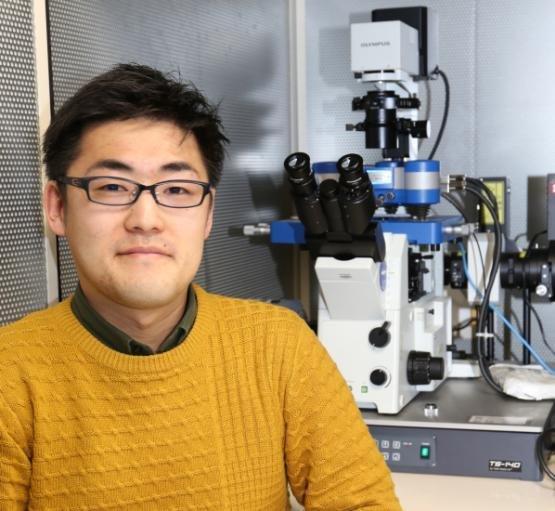Professor Taiji Adachi heads a multidiscipline research group at Kyoto University. One of its goals is to understand the mechanical basis of mechanotransduction at multiscale. This means they carry out experimental and theoretical approaches at tissue, cell and molecular scale. In addition, they are trying to combine the approaches to propose new concepts/mechanisms in the fields of biomechanics and mechanobiology.
One of the group’s PhD students was Koichiro Maki, currently doing a post-doctoral assignment at the University of Tokyo. He takes up the story. “To explore the mechanisms in mechanotransduction, especially at molecular scale, it is inevitable to look at conformations and mechanical behaviour of proteins. Some mechano-sensitive proteins are known to dynamically change their conformations under mechanical force and therefore regulate their interaction with binding partners to accomplish mechanotransduction in cells. However, this is quite complicated since cells express a variety of proteins and, at the same time, forces exerted to cells are also dynamically changing in their amounts and directions. Therefore, we have employed AFM for simplified in vitro single-molecule experiments to explore dynamical changes in conformations and mechanical behaviour in proteins under determined mechanical force by AFM. In 2016, we revealed that one of mechano-sensitive proteins, alpha-catenin, can assume stable intermediate conformation to sustain its activated state under tension, which we named as "mechano-adaptive conformational change"1. In addition, in our recently published paper, we have proposed a novel approach to observe the recruitment of binding partner proteins by total internal reflection microscopy (TIRF), at real time, to mechanically stretched proteins by AFM2. We hope our methods are utilized in integrating mechanical and biochemical information to understand cellular mechanotransduction.”
Speaking of his experiences with using AFM: “I moved into the Kyoto lab at the same time the NanoWizard® was delivered. I was lucky to have great support from colleagues and the JPK team. The NanoWizard® ULTRA for high speed imaging was very easy to set up and use, something I did not find using other makes of AFM where the high-speed imaging of proteins in liquids was quite unstable.”
For more details about JPK’s AFM systems and their applications for the materials, life & nano sciences, please contact JPK on +49 30726243 500. Alternatively, please visit the web site: www.jpk.com or see more on Facebook: www.jpk.com/facebook and on You Tube: http://www.youtube.com/jpkinstruments.
References
1 Mechano-adaptive sensory mechanism of α-catenin under tension, Koichiro Maki et al, Scientific Reports | (2016) 6:24878 | DOI: 10.1038/srep24878
2 Real-time TIRF observation of vinculin recruitment to stretched α-catenin by AFM, Koichiro Maki et al, Scientific Reports | (2018) 8:1575 | DOI:10.1038/s41598-018- 20115-8
JPK Instruments AG is a world-leading manufacturer of nanoanalytic instruments – particularly atomic force microscope (AFM) systems and optical tweezers – for a broad range of applications reaching from soft matter physics to nano-optics, from surface chemistry to cell and molecular biology. From its earliest days applying atomic force microscope (AFM) technology, JPK has recognized the opportunities provided by nanotechnology for transforming life sciences and soft matter research. This focus has driven JPK’s success in uniting the worlds of nanotechnology tools and life science applications by offering cutting-edge technology and unique applications expertise.
Headquartered in Berlin and with direct operations in Dresden, Cambridge (UK), Singapore, Tokyo, Shanghai (China), Paris (France) and Carpinteria (USA), JPK maintains a global network of distributors and support centers and provides on the spot applications and service support to an ever-growing community of researchers.
JPK BioAFM | Bruker Nano GmbH
Am Studio 2D
12489 Berlin
Telefon: +49 (30) 670990 7500
Telefax: +49 (30) 670990 30
https://www.bruker.com/bioafm
Communications Manager
Telefon: +49 (30) 726243500
Fax: +49 (30) 726243999
E-Mail: bagordo@jpk.com
Talking Science Limited
Telefon: +44 (1799) 521881
E-Mail: jezz@talking-science.com
![]()
